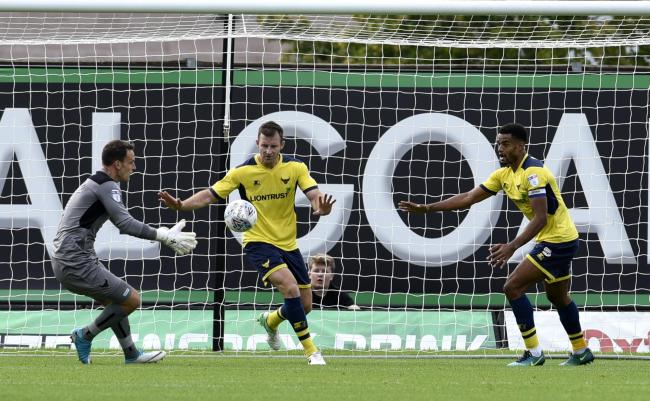Passion, like 'springboards' and 'momentum' are mainstays of any fans' explanation of form. Granted, it may be an alternative word to 'application' - the need to actually put effort into something - but ultimately, passion won't win games. There are about 7,000 people who passionately follow Oxford United every other Saturday - they are invariably useless at football.
So, what's going wrong?
Inevitably, after the Portsmouth result, Michael Appleton's name was being wafted around - after all, the guy is unemployed, can't we just go and get him and return to 2016? 2016 represents modern-Oxford's high watermark, its benchmark, it's our safe, happy place.
Indeed, 2016 is helpful in providing a reference point to analyse most things related to the club, but to simply want to go back there is unrealistic and therefore unhelpful.
So, where did it go so right?
Firstly, let's not forget, the Eales, Ashton, Appleton revolution took a year to materialise. 2014/15 was as bad as 2015/16 was good. While they were getting things right, there was a lot that went wrong including losing our first four league games (sounds familiar). At most other clubs, Appleton wouldn't have been given the time he was to get things right.
Second, there was funding - Darryl Eales had money, which he could access and was prepared to spend. He was close enough to the club's operations to ensure that the money, when needed, was available. Players, infrastructure, marketing - it wasn't so much about the amount of money that was spent - though that was inevitably a factor - it was more about the speed at which it could be accessed.
Third, Mark Ashton was an aggressively proactive chief executive. I confess, I didn't particularly like his schtick - especially in the early weeks. However, I briefly worked with someone who worked at a senior level with London Welsh who described Ashton as a 'nightmare' because if he wanted something, there was nothing to stop him getting it. He may have been a nightmare, but he was our nightmare.
And finally, we had a manager who understood the mechanics of modern football. Good scouting, sports science, short-term process goals, marginal gains. Whatever you want to call it, Appleton understood it, not only that, he studied it. He was given an unusually long time to get it right - but without that no manager would have achieved what he did with us. Even media-gobshite Robbie Savage admitted that new Arsenal manager Unai Emery will need at least three transfer windows to get things right, that's 18 months. Time most managers aren't given.
So this is, broadly, the formula we aspire to. Simply saying let's go back there seems an unlikely option - Darryl Eales had the funding to get us out of League 2, but a sustained challenge at League 1 seems unlikely. Mark Ashton and Michael Appleton's reputations place them squarely in the Championship - like many of the players they signed. We are simply too small for them at the moment.
Karl Robinson inherited quite a mess when he joined the club. There was the wreckage of the Pep Clotet experiment, coupled with a 10 week delay in getting his appointment over the line, in addition to Tiger's takeover. By this time we were in a relegation fight. You could argue that Robinson has had five months to get things right, but he was firefighting for a lot of that time. You could argue that the clock really only started when he secured safety last season, not when he joined.
There appears to be funding; Tiger has invested and in a lot of the right areas - training ground, youth set-up and the first team squad. Marketing has improved, including the strategy of building stronger links with the city; you may feel that town and gown shouldn't mix - but in terms of attracting investment, it seems ludicrous that we don't try to trade off the city's global reputation.
The problem seems to be the speed at which things happen. The training ground isn't finished and the club is living a nomadic life as a result, alongside this, signings have come in late. This is where I think there's a real weakness. For Mark Ashton's aggressive ambition, we now have Niall McWilliams - a largely silent, passive managing director. Is he demanding progress and funding, is he 'the nightmare' we need to get things done? It won't be wholly his fault; only Tiger has access to Tiger's chequebook, but the link between managing director and owner seems far too loose at the moment.
Which brings us to Karl Robinson. You sense Robinson's frustration that things are zipping along as he'd expect. Is it an excuse? Maybe, but I do get the sense he knows how to manage a football team. But, like Appleton before him, he needs the environment to be right to thrive. At the moment, it's not broken, it's just not functioning properly. He said as much on Saturday - they just have to get through this phase and things will improve. The risk is that players stop buying into the way of working and we find ourselves in another relegation fight.
The good news is that it can't get much worse. We won't lose every game and concede a bucketload for the whole year. The infrastructure, management and players are more than good enough to climb the table. What we don't know is what normal is from this squad. For everyone's sanity, the sooner we find out the better.










